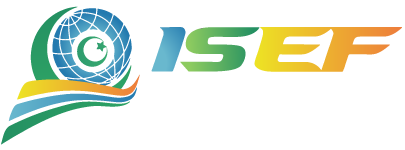Halal Lifestyle, for A Better Quality of Life
When lifestyle and religious blessings come together
Within the last decade, the term of halal lifestyle has become increasingly popular. This lifestyle refers to a part of Islamic sharia which is an obligation for muslims to consume and use everything that has been proven halal.
The word ‘halal’ literally means ‘allowed’, based on rules in Islam. Therefore, halal lifestyle can be defined as an individual’s way to live his/her daily life with halal principles, from their behavior, habits, activities, to their interests, everything has to be according Islamic sharia.
The popularity of halal lifestyle, for one, is triggered by the increasing population of middle class muslims who are up to date on lifestyle trends, but at the same time want products and services that reflect spirituality according to Islam.
From muslim communities, halal lifestyle started to gain everyone’s interest, because of its universality and in line with the human nature to prioritize health, cleanliness, and comfort. Anyone who implements halal lifestyle will be selective in choosing the products they use, because they must meet halal requirements, not only the source but from the production process to distribution.
The popularity of the halal lifestyle can also be seen from the growing halal industry, not limited to the food and beverages industry, but also in the cosmetics, fashion, medicine, travel, hospitality, finance, and even electronic industries.
Even countries with a majority of non-moslempopulation, are targeting the market for halal lifestyle enthusiasts. New Zealand, for instance, now famously known as one of biggest halal meat exporters in the world, Thailand claims to be a Halal Kitchen of the World, while Japan made halal industry as a key economic contributor by 2020.
How about Indonesia? As a country with moslem majority population, of course, halal lifestyle has been widely practiced, but not yet perfect. There are still many people in the country who assumes that when a certain type of food doesn’t contain something haram or unlawful, then it’s automatically halal. It’s not true.
To ensure that an object or product is halal, everything has to go according to halal requirements, from its production to distribution. This is where halal certification associations such as the Institute for the Study of Food, Drugs, and Cosmetics of the Indonesian Council of Religious Scholars (LPPOM MUI) are responsible. They are responsible for the halal labeling in Indonesia.
Halal Lifestyle in the Midst of COVID-19 Pandemic
The practice of halal lifestyle brings huge advantages to the quality of our lives. By consuming everything that is good, safe, and healthy, ensures the good condition of our bodies and souls. Our bodies will get a good and adequate nutritional intake, while our mind will be at peace knowing everything we consume and use is safe and of good quality.
In the midst of COVID-19 pandemic, halal lifestyle becomes more relevant as a lifestyle that needs to be practiced by all of us. Halal lifestyle pays a great attention to eligibility, cleanliness and safety standards for humans, which are in tune with new normal behavior, and will protect us from COVID-19 exposure. Moreover, if it is accompanied by disciplined behavior in practicing health protocols such as hands-washing, maintaining distance, avoiding crowds, using masks, and vaccinations, it will obviously be very beneficial for us, enabling us to carry out safe and comfortable activities in the midst of this pandemic.
Halal Lifestyle Development
In one particular interview with Kompas (26/06), Vice President of Republic of Indonesia, Ma’ruf Amin explained that the country has a target to develop the halal industry into becoming one of the nation’s economic pillars. To achieve this, Minister of the Economy Airlangga Hartarto, said that Indonesia needs to focus on developing the Halal Value Chain which consists of six potential industrial sectors, namely halal food and beverages, halal tourism, halal fashion, halal recreation media, halal pharmaceutical-cosmetics, and halal energy.
These six industries can bring Indonesia to the top of the global sharia economy and finance stage. The development of all these sectors will greatly affect the practiceof halal lifestyle in Indonesia. The more developed the halal industry, the more halal products that can be enjoyed by the public, which ultimately has an impact on the progress of the Indonesian sharia economy and finance.
In addition, the development of a halal lifestyle also needs to involve the wider community, by providing education about the relevance of a halal lifestyle that is not only binding on the muslim community, but can also be practiced by the wider community, considering that there are so many benefits of this halal lifestyle. People who have practiced halal lifestyle also need to continue to follow the development of information about halal products and their standardization, in order for it to develop from a jargon to a blessing, for ourselves and others around us.


